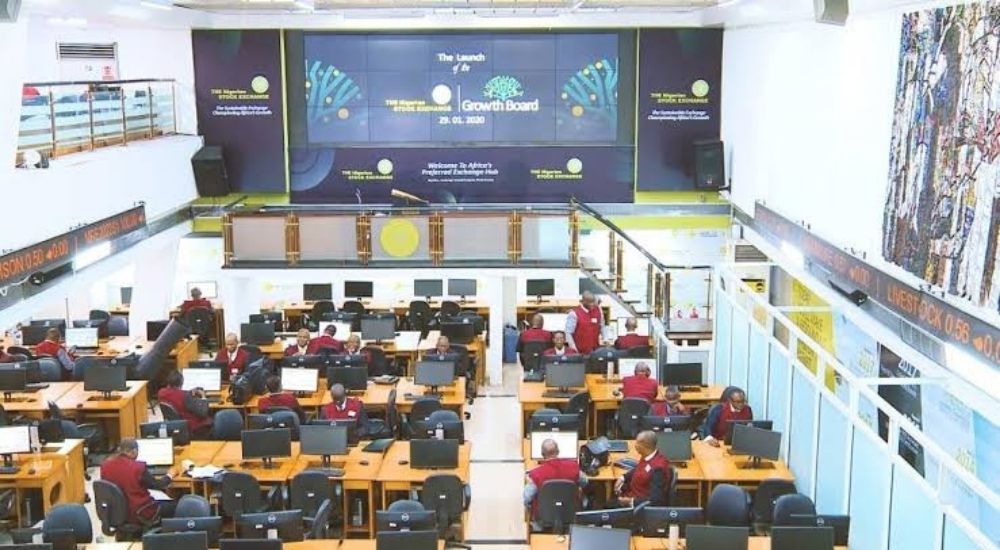Tinubu 2nd Anniversary: Stakeholders Bemoan Poor Healthcare

The health sector has yielded some progress under the Bola Tinubu administration but stakeholders believe quality healthcare in Nigeria is still farfetched.
Despite the government’s initiatives to improve healthcare, challenges persist, with stakeholders blaming it largely on inadequate budget allocation to the health sector and its utilisation.
The World Health Organisation (WHO) recommends that low-income countries (LICs) allocate at least 5 per cent of their Gross Domestic Product (GDP) to health funding to ensure financial protection and achieve Universal Health Coverage (UHC).
This includes prioritising public funding to ensure equitable access and financial protection through a primary health care approach.
The Tinubu administration in its first year in office allocated ₦1.5trn to the health sector, representing 2.51 per cent of the ₦35.05trn signed budget. Also, in 2025, it allocated N2.78trn to the health sector, representing 5.05 per cent of the total N54.99trn budget signed into law on February 28, 2025.
The allocations are meant to go into various areas of the sector to achieve the administration’s health policies, which include upskilling manpower, strengthening structural integrity, upgrading infrastructure, and providing essential equipment to ensure efficiency in healthcare delivery.
However, stakeholders who spoke with THE WHISTLER said none of the health policies have been met.
The Chairman of the Nigerian Medical Association (NMA), Abuja chapter, Dr Emeka Ayogu, told THE WHISTLER that quality healthcare in Nigeria remains far-fetched, stressing that the country’s meagre budget allocation to the health sector is a major concern.
He added that going by WHO recommendations, the government should allocate a reasonable portion of its budget to the health sector.
According to him, the low budget allocation to the health sector has had far-reaching consequences on health service delivery, including poor pay and remuneration for doctors, inadequate facilities, and insufficient manpower, leading to burnout among healthcare workers. This, he added, has also triggered a brain drain, with some doctors leaving the country in search of better opportunities.
“Doctors are leaving in large numbers because of an unsuitable and unconducive atmosphere melted out to them, either by poor payment or poor facilities at work. So I will not give the federal government kudos or a clap so far in terms of healthcare delivery,” Ayogu stated.
When asked about achievements in the health sector, Ayogu noted that despite efforts, doctors are still struggling with poor remuneration, making it hard to acknowledge significant progress
He added that he can classify most of the doctors as lower class because of their inability to meet up with their responsibilities, especially financial responsibilities.
Ayogu further stated that the Consolidated Medical Salary Structure (CONMES) arrears were approved but added that for over seven months, the medical doctor’s arrears have been pending while the government says it has no provision for it in the budget.
He added that this has led most doctors to rate the Tinubu administration’s performance as underwhelming or disappointing.
He, however, acknowledged that the government has been doing well in terms of paying salaries but the challenge burdens on the accumulated arrears.
Also speaking, the Chairman of the Pharmaceutical Society of Nigeria, Pharm. (Mrs.) Salamatu Orakwelu, stated that the administration’s achievements in the health sector are still in progress but are dependent on the full implementation of policies on local manufacturing and waivers on medicine importation.
Orakwelu further stated that the country’s healthcare is still facing a lot of challenges ranging from inaccessibility and affordability of vital drugs, prevalence of chronic diseases, healthcare infrastructure and workforce challenges, initiatives and recommendations, to social support and treatment adherence.
According to her, access to healthcare and essential medications for chronic illnesses like hypertension and diabetes in Nigeria remains a significant challenge, influenced by factors such as affordability, infrastructure, and systemic support.
She added that hypertension and diabetes affect nearly 30 per cent of Nigerian adults, posing substantial health challenges.
Citing a study in Lagos, she stated that among Type 2 diabetic patients, 80 per cent also have hypertension, highlighting the commonality of comorbid conditions.
Orakwelu further explained that access to essential medications for chronic diseases is hindered by several factors, which include out-of-pocket (OOP) expenses that account for 74.4 per cent of current health expenditure on non-communicable diseases (NCDs), placing a significant financial burden on households.
She lamented that only 25.6 per cent of health expenditure on NCDs comes from public sources, indicating limited government support, and less than 5 per cent of rural Nigerians are enrolled in the National Health Insurance Scheme (NHIS), leaving the majority to rely on OOP payments for healthcare.
Orakwelu also explained that the healthcare system in Nigeria faces infrastructural and workforce limitations.
She noted that doctor-to-patient ratios in rural areas range from 1:10,000 to 1:30,000, far below the WHO’s recommendation of 1:600.
Speaking on primary healthcare, Orakwelu said that over 70 per cent of public primary healthcare centres lack functional basic medical equipment, impeding effective chronic disease management.
She explained that social support plays a crucial role in managing chronic illnesses, citing that a study in southwestern Nigeria revealed that patients with consistent access to financial support had significantly better medication adherence and health outcomes.
“Family support was the most accessible, but government and non-governmental organisation support were largely desired, especially financial assistance,” she said.
Orakwelu stated that to improve access to healthcare and medications for chronic illnesses, there should be expansion in health insurance coverage, particularly in rural areas, to reduce OOP expenses.
She further advised the government to invest in healthcare infrastructure and workforce development, ensure adequate staffing and equipment in primary healthcare centres, promote the use of generic medications to enhance affordability and accessibility, and implement community-based support programmes, such as adherence clubs, to improve treatment adherence and patient outcomes.
She added that addressing these challenges requires a multifaceted approach involving government policy changes, increased funding, community engagement, and international support to ensure that individuals with chronic illnesses receive the care and medications they need.
Tinubu 2nd Anniversary: Stakeholders Bemoan Poor Healthcare is first published on The Whistler Newspaper





